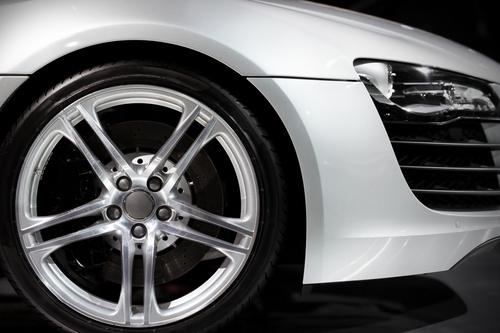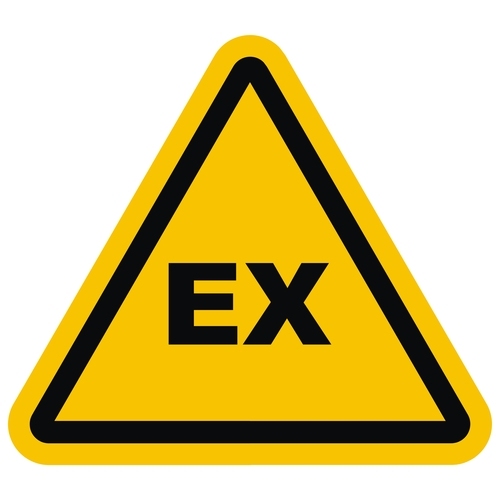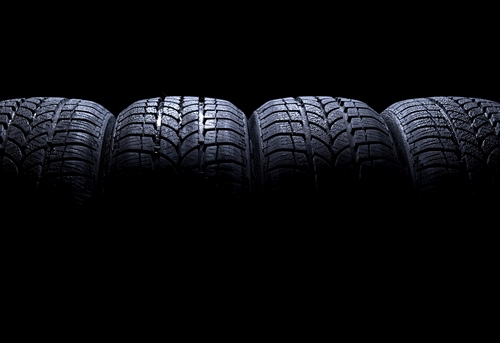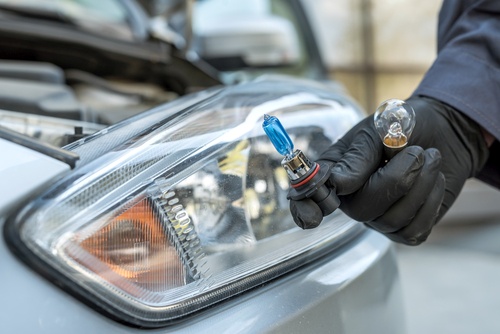Audi partners with Alibaba, Baidu and Tencent on vehicle technology
German luxury car brand Audi recently announced its collaboration with leading technology companies from China such as Alibaba, Baidu and Tencent. Part of the collaboration is said to include features such as infotainment, autonomous driving and connectivity for the automaker’s upcoming EV cars. In this way, Audi hopes to make its vehicles more attractive to Chinese customers, especially younger buyers. Giorgio Delucchi, Audi’s head of sales for China and Hong Kong, said the company aims to incorporate only the latest technologies in its soon-to-be-released EVs. The carmaker is working with Alibaba Group Holding, Baidu and Tecent Holding on Big Data, Internet of Things (IoT) and urban mobility. Delucchi said in an interview that he wants to ensure Audi is at the forefront of technical cooperation and development with its Chinese partners. Infotainment, autonomous driving and connectivity functions are key areas that Audi needs to tap into in order to stay ahead of the competition in the Chinese market, the sales executive added. Vehicles and components must be awarded a CCC certificate in order to export the products to China or trade them locally.

For Audi, as the leading brand in China for luxury vehicles for three decades, the electrification of vehicle models in the world’s largest car market has only just begun. Tesla and Chinese start-ups such as Xpeng, NIO and Li Auto are entering the EV market as serious competitors. Their target group, young drivers, has a preference for intelligent vehicle features such as driver assistance systems, voice recognition and large displays in the vehicles. The aforementioned three Chinese start-ups, with more than 10,000 EVs delivered in November, have the potential to drastically reduce Tesla’s market share, according to experts. Audi, as the luxury car brand of the Volkswagen Group, does not report separate sales figures for their EVs in China, but is estimated to be far behind Tesla and the local start-ups. Tian Maowei, sales manager at a major car dealer in Shanghai, agrees: “In today’s e-vehicle market, customers are more interested in automatic functions and range.” Maowei adds: “Mercedes, BMW and Audi are popular brands for cars with combustion engines. However, they need to adapt their EV strategy respectively models for the Chinese market to attract customers here as well.”
CCC certification for automotive products is a complex project that requires professional support at all stages. For several years, MPR China Certification GmbH has been entrusted with large CCC projects for the vehicle manufacturers Lotus, Tesla and Bugatti. We will be pleased to provide you with non-binding advice on the scope and requirements of a China CCC certification.
Please do not hesitate to contact us for further details and consultation. You can contact us via e-mail, or call us (UK: +44 2071931135, Rest of Europe: +49 69 2713769150, US: +1 773 654-2673).
Please don’t hesitate to also use our chat-window in the bottom right corner if you have any questions. (Please check your browser settings if you can’t see the window)
You can also check out our free CCC-Brochure, which can be downloaded right here as a PDF file or you consult our book (in English) “A Brief Guide to CCC: China Compulsory Certification”, which can be found directly here on Amazon.
Here you can download our brochure about the CCC Self-Declaration.
Here you can download our brochure about the voluntary CCAP or CQC certification.
CCC Ex standards consolidated to GB/T 3836.1
CNCA has issued 2022 Announcement no.6 on April 26, 2022. According to this announcement, 12 old CCC Ex standards will be consolidated, and in consequence 8 new versions of CCC Ex standards will be implemented from May 1, 2022.
The CCC Implementation Rules for explosion-proof electrical equipment (CNCA-C23-01:2019) will be revised to reflect the change in standards. This revision will not result in any changes to the CCC catalogue. Explosion proof products require a CCC-Ex certification in China.

The consolidated general standard will be GB/T 3836.1. The following 8 new versions of the standards for the different explosion-proof types (d, e, i, p, o, n, m, t) have been updated as part of the consolidation:
| No. | Explosion-proof types | Standards | |
| General Standards | Special standards | ||
| 1 | Flameproof enclusures type: “d” | GB/T 3836.1 | GB/T 3836.2 |
| 2 | Increased safety: “e” | GB/T 3836.3 | |
| 3 | Intrinsically safe type: “i” | GB/T 3836.4 | |
| 4 | Pressurized enclosure type“p” | GB/T 3836.5 | |
| 5 | Liquid immersion type“o” | GB/T 3836.6 | |
| 6 | Powder filling type: “q” | GB/T 3836.7 | |
| 7 | Type “n” | GB/T 3836.8 | |
| 8 | Encapsulation type: “m” | GB/T 3836.9 | |
| 9 | Dust ignition protection by enclosure“t” | GB/T 3836.31 | |
For more information on how CCC certification, the CCC-Ex certification and voluntary CCAP or CQC certification may affect your company, or for more information about CCC certification in general, the process, and the associated costs, please visit our website and our News Section where you will find current updates twice a week.
Please do not hesitate to contact us for further details and consultation. You can contact us via e-mail, or call us (UK: +44 2071931135, Rest of Europe: +49 69 2713769150, US: +1 773 654-2673).
Please don’t hesitate to also use our chat-window in the bottom right corner if you have any questions. (Please check your browser settings if you can’t see the window)
Here you can download our brochure about the CCC Self-Declaration.
Here you can download our brochure about the voluntary CCAP or CQC certification.
Introduction to “Technical Certifications in China, India, Korea”

In June and July 2022, the Hanover Chamber of Commerce and Industry (IHK) will offer a series of online seminars created and conducted by us, MPR China Certification.
The seminars are aimed at quality management representatives of industrial companies as well as project engineers or project managers responsible for certifications of products for China, India or Korea.
The free introductory event on 18.05.2022, 9:15-10:00 a.m. provides an overview of the certification landscape of the respective countries, which will be covered comprehensively and in depth in the individual seminars and is intended to give an insight into what you can expect in the individual seminars.
Registration is required for the introductory event. You can find the registration info together with further event details on the website of the IHK Hannover.
The in-depth seminars will focus on the following countries and industries:
- Technical Certifications in China Automotive (2-part): – Part 1: Wed, 22.06.2022, 9:00-12:00 hrs. – Part 2: Fri, 24.06.2022, 9:00-12:00)
- Technical Certifications in India (1-part): – Mon, 06/27/2022, 9:00am-12:00pm.
- Technical Certifications in South Korea (1-part): – Tue, 06/28/2022, 9:00-12:00 (duration 3 hours)
- Technical Certifications of Industrial Products in China (2-part): – Part 1: Tue, 07/12/2022, 9:00am-12:00pm. – Part 2: Wed, 07/13/2022, 9:00am-12:00pm
At MPR China Certification, we have been assisting hundreds of companies worldwide with certifications for the Chinese, Korean and Indian markets since 2005.
If you would like to receive more information about any of the certifications in advance, please visit our website or contact us by email or at +49692713769150.
China Green Label Certification for car tires
“Green Label Certification” is a product certification for sustainable products in China. The latest addition to the list are car tires that in addition to mandatory CCC certification can now also be certified as “green”. The CNCA (Certification and Accreditation Administration of the People’s Republic of China) just published the corresponding implementation rules.

Chinese consumers increasingly put a focus on sustainability, as well as saving energy and resources. The Chinese government also aims to encourage consumers to switch to “green” products. To achieve this goal the government launched the “China Green Label Certification” in 2017. The new certification scheme replaces several earlier ones that were not nearly as comprehensive. The certification scheme focuses on the product itself, the production methods, materials and recyclability of the product. For example, the production processes must be environmentally friendly, save water and produce as little CO2 as possible and the materials used should be either ecological or recyclable.
Overall, the “Green Label Certification” intends to spread awareness of sustainable products in the Chinese market. The new logo also increases familiarity and trust in the new system.
Authorities are constantly expanding the list of products to be certified. Recently the Chinese authority added a number of new consumer goods to the scope of certification. The latest additions to the list are car tires, refrigerators, air conditioners and washing machines. However, car tires must still be certified “green” according to GB/T 40718-2021.
In addition, CCC certification still applies to many products.
For more information on how CCC certification, the CCC Self-Declaration and voluntary CCAP or CQC certification may affect your company, or for more information about CCC certification in general, the process, and the associated costs, please visit our website and our News Section where you will find current updates twice a week.
Please do not hesitate to contact us for further details and consultation. You can contact us via e-mail, or call us (UK: +44 2071931135, Rest of Europe: +49 69 2713769150, US: +1 773 654-2673).
Please don’t hesitate to also use our chat-window in the bottom right corner if you have any questions. (Please check your browser settings if you can’t see the window)
You can also check out our free CCC-Brochure, which can be downloaded right here as a PDF file or you consult our book (in English) “A Brief Guide to CCC: China Compulsory Certification”, which can be found directly here on Amazon.
Here you can download our brochure about the CCC Self-Declaration.
Here you can download our brochure about the voluntary CCAP or CQC certification.
Standard GB 4785-2019 – CCC Certification for Headlights
The use of External Lighting and Light-Signaling Devices for Motor Vehicles and their Trailers has been controlled by official regulations in China since 1984. In order to import and sell these products in the country, a valid CCC certification is mandatory by law.
For almost 15 years, GB4785-2007 has been the valid national test standard (Guobiao Standard) for this product group in China. However, it was replaced by the new version GB4785-2019 on July 1, 2020. The new standard includes important changes that may affect the certified manufacturers, the vehicle OEMs, and suppliers.
In some cases, such regulations for vehicles only come into force from a certain registration year.

The most important adjustments include changes of definitions within the certification scope. This applies to interdependent lamp systems, maneuvering lamps, cornering lamps, conspicuity markings, rear-end collision alert signals, adaptive front lighting systems and others. The term of equivalent lamps has meanwhile been completely removed from the standard. Certified manufactures, whose products were before grouped under one of the product categories listed above, now need to verify the validity of their classification.
A further update relates to the testing requirements of specific products, especially of headlamps. Moreover, the calculation of light emitting, illuminating, and apparent surface areas was modified, which must be implemented in new and existing application documents.
Last, the new standard explicitly allows the use of lamps and other exterior lighting and light-signaling devices which are not covered by its regulations under certain conditions in the static state of the vehicle.
The GB standards and product-specific Implementation Rules in China are subject to regular modifications by the authorities. Updates are usually not publicly announced, so it is the responsibility for manufacturers to closely follow updates and adjustments before the deadlines. If the new test standards or new regulations are not met by the given deadline severe consequences including problems at customs and/or cancelations of certificates may happen without prior warning.
For more information on how CCC certification, the CCC Self-Declaration and voluntary CCAP or CQC certification may affect your company, or for more information about CCC certification in general, the process, and the associated costs, please visit our website and our News Section where you will find current updates twice a week.
Please do not hesitate to contact us for further details and consultation. You can contact us via e-mail, or call us (UK: +44 2071931135, Rest of Europe: +49 69 2713769150, US: +1 773 654-2673).
Please don’t hesitate to also use our chat-window in the bottom right corner if you have any questions. (Please check your browser settings if you can’t see the window)
You can also check out our free CCC-Brochure, which can be downloaded right here as a PDF file or you consult our book (in English) “A Brief Guide to CCC: China Compulsory Certification”, which can be found directly here on Amazon.
Here you can download our brochure about the CCC Self-Declaration.
Here you can download our brochure about the voluntary CCAP or CQC certification.



